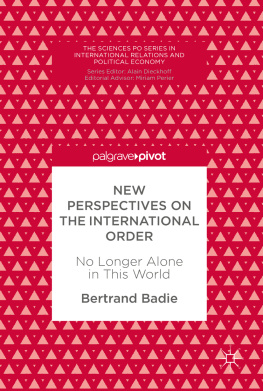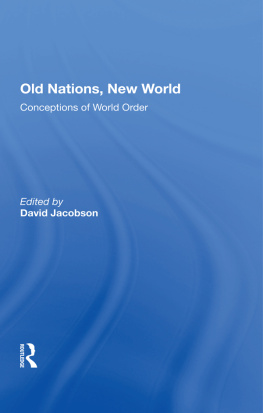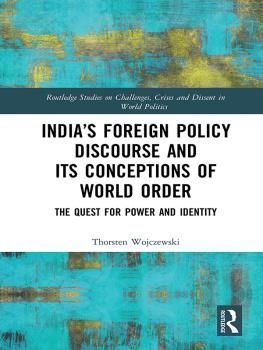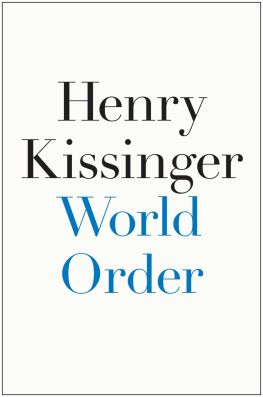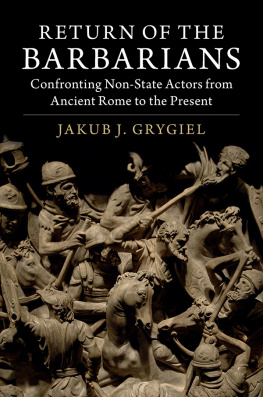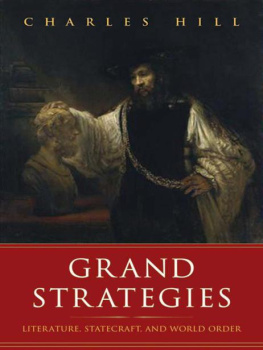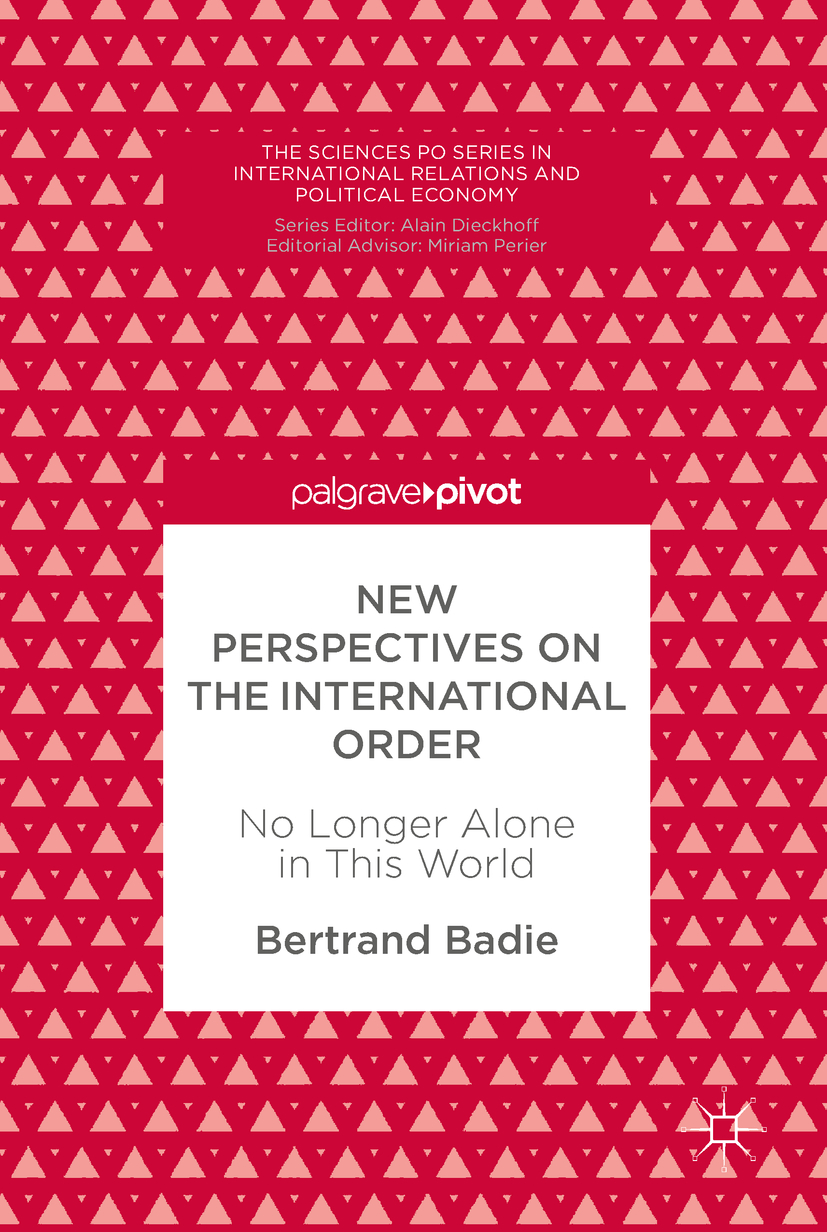The Sciences Po Series in International Relations and Political Economy
Series Editor
Alain Dieckhoff
Center for International Studies (CERI), Sciences PoCNRS, Paris, France
Editorial Advisor
Miriam Perier
Center for International Studies (CERI)
Sciences Po
Paris, France
The Science Po Series in International Relations and Political Economy consists of works emanating from the foremost French researchers from Sciences Po, Paris. Sciences Po was founded in 1872 and is today one of the most prestigious universities for teaching and research in social sciences in France, recognized worldwide. This series focuses on the transformations of the international arena, in a world where the state, though its sovereignty is questioned, reinvents itself. The series explores the effects on international relations and the world economy of regionalization, globalization, and transnational flows at large. This evolution in world affairs sustains a variety of networks from the ideological to the criminal or terrorist. Besides the geopolitical transformations of the globalized planet, the new political economy of the world has a decided impact on its destiny as well, and this series hopes to uncover what that is.
More information about this series at http://www.palgrave.com/gp/series/14411
Bertrand Badie
New Perspectives on the International Order No Longer Alone in This World
Bertrand Badie
Center for International Studies (CERI), Sciences Po, Paris, France
The Sciences Po Series in International Relations and Political Economy
ISBN 978-3-319-94285-8 e-ISBN 978-3-319-94286-5
https://doi.org/10.1007/978-3-319-94286-5
Library of Congress Control Number: 2018945191
Based on a translation from the French language edition:Nous ne sommes plus seuls au monde: Un autre regard sur l by Bertrand BadieCopyright La Dcouverte 2016All Rights ReservedTranslated by William Snow
The Editor(s) (if applicable) and The Author(s), under exclusive licence to Springer International Publishing AG, part of Springer Nature 2019
This work is subject to copyright. All rights are solely and exclusively licensed by the Publisher, whether the whole or part of the material is concerned, specifically the rights of translation, reprinting, reuse of illustrations, recitation, broadcasting, reproduction on microfilms or in any other physical way, and transmission or information storage and retrieval, electronic adaptation, computer software, or by similar or dissimilar methodology now known or hereafter developed.
The use of general descriptive names, registered names, trademarks, service marks, etc. in this publication does not imply, even in the absence of a specific statement, that such names are exempt from the relevant protective laws and regulations and therefore free for general use.
The publisher, the authors and the editors are safe to assume that the advice and information in this book are believed to be true and accurate at the date of publication. Neither the publisher nor the authors or the editors give a warranty, express or implied, with respect to the material contained herein or for any errors or omissions that may have been made. The publisher remains neutral with regard to jurisdictional claims in published maps and institutional affiliations.
Translated by William Snow
Cover illustration: Andrew Taylor/Flickr
This Palgrave Pivot imprint is published by the registered company Springer International Publishing AG part of Springer Nature
The registered company address is: Gewerbestrasse 11, 6330 Cham, Switzerland
Preface to the English Edition
The political science of international relations grew for the most part out of the euphoria following the victory over Nazism and its horrors in 1945. Its body of writing therefore developed around an apology of power and the quiet conviction that hegemony could be full of virtues. The dialogue that was established between realists and liberals was on its way to making history. The former deserved credit for grasping a world in which one had to be strong and cunning in order to survive. To the latter fell the role of recalling the importance of values that gave power a purpose. They were thus perfectly equipped with all the necessary concepts for entering the maze of budding bipolarity and the ensuing cold war.
Yet there was a double danger there. First, without the slightest criticism, these concepts had assumed enduring virtues that gradually made them unresponsive to history, without being aware of their Westphalian origins. It was as if they were endowed with a presumed immortality and an insensitivity to the changing context. Furthermore, they were imbued with a strange exhilarating property, forever reassuring those who had sufficient resources of power. The instruments effective capacity mattered little, as long as they were acquired in large numbers. The statistical illusion acted like a methodological drug. GNP was quantified, missiles were counted, questions were raised about divisions, military spending was measured and the resulting ranking was held to be as obvious as it was intangible, a kind of Bible of new science. The quantitativists had triumphed!
Consequently, few in the field of science or of action saw the change that was coming. No one had foreseen the fall of the Berlin Wall, at least not in the way it happened. But, even more, no one had thought that more change was in the offing, a more substantial, more decisive, more remarkable change because, this time, it was having an affect beyond the worlds configuration to its very dimensions, scope and identity. The Westphalian concept of the internationalwhich had thus far reigned supremewas a Western invention, the famous order that in fact was only comprised of a homogeneous group of states linked by the unity of time, the proximity of cultures, the similarity of economies, and the affiliation of social structures. Globalizationwhich still has not been defined with any precisionabruptly turned everything upside down, challenging everything, endorsing new actors, new cultures, new issues, new conflicts and, in so doing, made many of our categories outdated.
I am therefore suggesting that our old political science cannot survive without adapting to this conceptual tsunami. Whereas political actors would often rather not see a change whose implications could be too costly, it is crucial for political science to grasp that we are no longer alone in the world and to build the new alterity that is affecting our perception of the international, the nature of our difficulties and the actors involved, and perhaps also our reading of history. Wars can no longer be won in a new Battle of the Marne, conflicts are no longer settled through deliberation by the European Concert, and choices are no longer made only on the basis of Western visions. For that reason, the French edition of this book is entitled Nous ne sommes plus seuls au monde (We are no longer alone in the world) . The realization verges on the nightmarish for many analysts and for those in power, but these considerations are full of common sense and are aimed at re-examining our old political science. It is my great pleasure to present this rather atypical book to English-speaking readers. The task is so complex that it could clearly not be accomplished without thinking outside the box.

